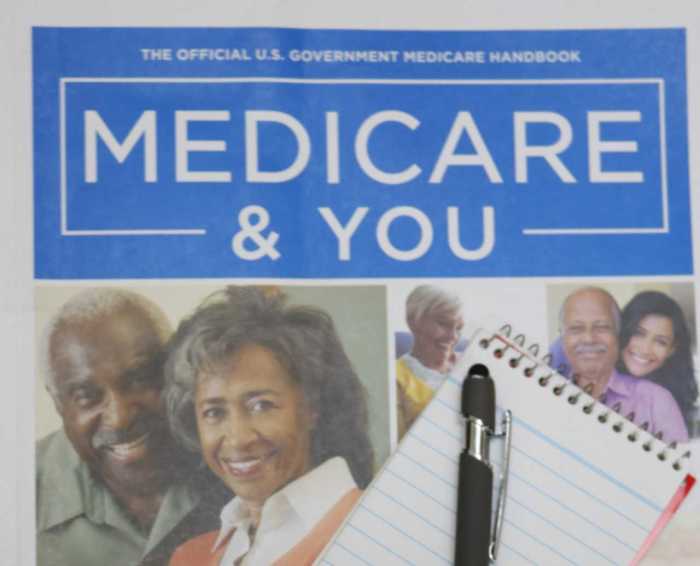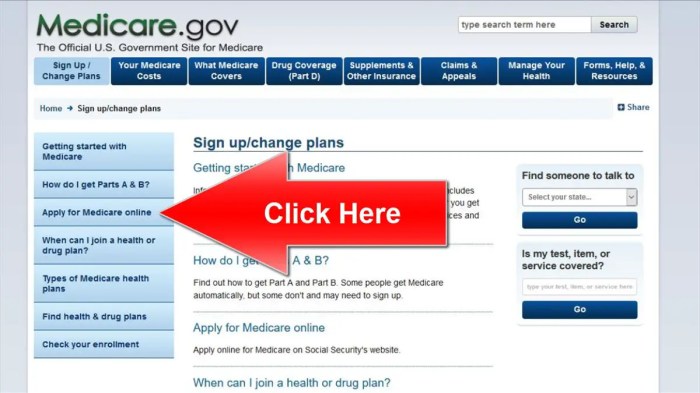Mrs berkowitz wants to enroll in a medicare – As Mrs. Berkowitz embarks on the journey of enrolling in Medicare, this comprehensive guide serves as an authoritative companion, unraveling the complexities of the program and empowering her with the knowledge to make informed decisions. With a focus on clarity and accuracy, this article provides a thorough understanding of Medicare’s intricacies, ensuring a seamless enrollment process and optimal healthcare coverage.
Delving into the specifics, we will explore the eligibility criteria, coverage details, and potential gaps in Medicare coverage. Furthermore, we will shed light on Medicare supplement insurance, prescription drug plans, and savings programs, empowering Mrs. Berkowitz to tailor her coverage to her unique needs and financial situation.
Medicare Enrollment Process

Enrolling in Medicare involves several steps:
- Initial Enrollment Period (IEP):For those turning 65, IEP begins 3 months before and ends 3 months after the birthday month.
- General Enrollment Period (GEP):If you miss IEP, you can enroll during GEP, which runs from January 1 to March 31 each year.
- Special Enrollment Periods (SEP):Exceptions to the general enrollment rules, such as losing employer coverage or moving to a new area.
Eligibility Requirements for Medicare Parts, Mrs berkowitz wants to enroll in a medicare
| Part | Eligibility |
|---|---|
| Part A (Hospital Insurance) | Individuals 65 or older or under 65 with certain disabilities |
| Part B (Medical Insurance) | Individuals 65 or older or under 65 with certain disabilities |
| Part C (Medicare Advantage) | Individuals 65 or older or under 65 with certain disabilities |
| Part D (Prescription Drug Coverage) | Individuals 65 or older or under 65 with certain disabilities |
Medicare Coverage for Mrs. Berkowitz

Based on her age of 65 and qualifying disability, Mrs. Berkowitz is eligible for the following Medicare benefits:
- Part A (Hospital Insurance):Covers inpatient hospital stays, skilled nursing facility care, and hospice care.
- Part B (Medical Insurance):Covers doctor visits, outpatient care, and medical equipment.
- Part D (Prescription Drug Coverage):Covers prescription medications through a private insurance plan.
Coverage Limitations and Exclusions
While Medicare provides comprehensive coverage, it does have some limitations and exclusions:
- Part A does not cover long-term nursing home care.
- Part B does not cover routine dental or vision care.
- Part D does not cover all prescription medications.
Medicare Supplement Insurance

Medicare supplement insurance (Medigap) helps fill coverage gaps in Original Medicare (Parts A and B):
- Covers deductibles, copayments, and coinsurance
- Provides additional benefits, such as foreign travel coverage
Types of Medicare Supplement Plans
| Plan | Coverage |
|---|---|
| Plan A | Basic coverage for deductibles and coinsurance |
| Plan B | More comprehensive coverage than Plan A |
| Plan C | Most comprehensive coverage, covering all Part A and B cost-sharing |
Medicare Prescription Drug Coverage
Medicare prescription drug plans (Part D) are offered by private insurance companies:
- Monthly Premium:Varies by plan and coverage
- Deductible:Annual amount you must pay before coverage begins
- Copayments:Fixed amount you pay for each prescription
- Coverage Gap (Donut Hole):Period when you pay more for prescriptions
Types of Medicare Prescription Drug Plans
| Plan Type | Features |
|---|---|
| Preferred Provider Organization (PPO) | Lower costs if using network pharmacies |
| Health Maintenance Organization (HMO) | Lowest premiums but requires using specific pharmacies |
| Private Fee-for-Service (PFFS) | More flexibility but higher costs |
Medicare Savings Programs

Medicare savings programs help low-income individuals and families pay for Medicare costs:
- Qualified Medicare Beneficiary (QMB) Program:Pays for Medicare premiums, deductibles, and coinsurance for individuals with very low incomes and assets.
- Specified Low-Income Medicare Beneficiary (SLMB) Program:Pays for Medicare premiums for individuals with slightly higher incomes and assets than QMB.
- Medicare Savings Program (MSP):Pays for Medicare premiums for individuals with incomes slightly above SLMB.
Eligibility Requirements
Eligibility for Medicare savings programs is based on income and assets:
- QMB: Income at or below 100% of the Federal Poverty Level (FPL)
- SLMB: Income between 100% and 120% of FPL
- MSP: Income between 120% and 135% of FPL
Medicare Resources for Mrs. Berkowitz
- Social Security Administration (SSA):1-800-772-1213
- Medicare.gov: https://www.medicare.gov
- Local Medicare Office:Contact information available at https://www.medicare.gov/contacts
User Queries: Mrs Berkowitz Wants To Enroll In A Medicare
What are the eligibility requirements for Medicare?
Individuals who are 65 years or older, younger individuals with certain disabilities, and individuals with End-Stage Renal Disease (ESRD) are generally eligible for Medicare.
What is the difference between Original Medicare and Medicare Advantage?
Original Medicare consists of Part A (hospital insurance) and Part B (medical insurance), while Medicare Advantage is a bundled plan offered by private insurance companies that combines Parts A and B and often includes additional benefits.
What are Medicare supplement insurance plans?
Medicare supplement insurance plans, also known as Medigap, are designed to fill coverage gaps in Original Medicare, such as deductibles, copayments, and coinsurance.
How can I find more information about Medicare?
The Social Security Administration website (www.ssa.gov/medicare) and the Medicare website (www.medicare.gov) provide comprehensive information about Medicare.